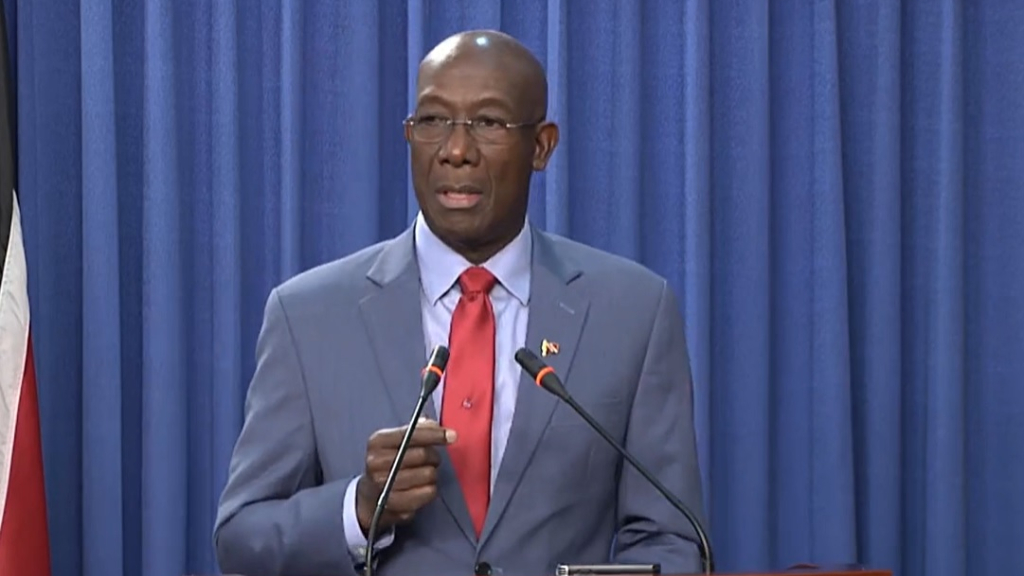Caricom at 50 should have recapped the achievements of the regional organization over the last 50 years. This the leaders have failed to do because Caricom has achieved nothing except a single voice to interact among member states and the wider world. All the major speakers including Dr Keith Rowley, the Prime Minister of Trinidad and Tobago, failed to point to any achievements.
Caricom has failed to bring stability in Haiti which continues to have grave social and political unrest. There appears to be no end to the sufferings of the people of Haiti; more seriously is the reality that all the Caricom countries are on the road to Haiti. Trinidad and Tobago which was a shining star in the region has now descended into a dark cloud of economic and social doom hovering above the nation. Instead of the government using the energy windfall to diversify the economy, consumerism and fetes became the order of the day.
Looking at the guests invited to celebrate Caricom at 50 revealed that this grouping is not on development but growing and shaping Black consciousness. What exactly can Paul Kagame, the President of Rwanda bring to Caricom? Notwithstanding its ethnic conflict in more recent years, Rwanda is described as a poor country with almost 90% of the population surviving on less than US$2 per day and half of its population living on less than US$1 per day.
Another major guest was Congressman Hakeem Jeffries, House Minority Leader in the House of Congress promising to curb the importation of illegal guns being trafficked from the US to Trinidad and Tobago. While Caricom looks forward to his promise with optimism, the reality is that the Black community in the US is besieged with gun violence. Statistics reveal that more than 12,400 Blacks in the US die from gun violence each year. Statistics further reveal that on average each day 34 Black Americans are killed by guns and 110 experience non-fatal injuries.
Hakeem Jeffries’ intent to curb the importation of illegal firearms into the region is commendable but the reality is that he must act swiftly to save the Black community in the US that is imploding with gun violence. And the same can be said for Trinidad and Tobago and the entire region.
The cultural presentations at Caricom ignored the Indo Caribbean cultural expressions of Guyana, Suriname and Trinidad and Tobago where Indians form almost half the population in the three territories. The cultural show ignored the First People that exist in countries like Guyana, Belize, Suriname, and Dominica. As for the whites, Syrians and Chinese, they appear to be valued only for their business acumen and not viewed as a vibrant though small communities with their distinct cultural heartbeats.
The recent trip to the USA by the Prime Minister of India was an acknowledgement of India as a growing power. Business houses in the USA took advantage of this bilateral meeting to sign economic pacts with their Indian counterparts. Could this Caricom summit have been used as a forum to strengthen that cultural and economic bond with India? More so, India as a voice for the Global South and its recent pitch to include 20 African nations within the G20 are all the reasons why Caricom should have grasp the opportunity to strengthen economic ties with India.
As pointed out earlier, development is not the goal of Caricom but cultural hegemony or Black consciousness. Historically, this was demonstrated in the 1970s and 1980s when the entire Caricom turned a blind eye to the repeated rigging of elections by Forbes Burnham of Guyana. His institutionalization of racism resulted in blatant discrimination against the majority Indian population forcing them to flee the country to live like refugees in other countries. Despite this, Burnham was always given red carpet treatment by Caricom leaders to the detriment of the Guyanese people.
Caricom as a region must wake up to the reality that slavery and colonialism have ended, and it has a responsibility to chart its own destiny. The era of dependency on preferential markets and grants have long gone. The current world presents opportunities to forge alliances with nations on merit to win tangible benefits and not be emotionally bound to ethnic and historical ties.
